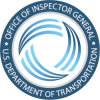What We Looked AtOn March 24, 2015, Germanwings Flight 9525 crashed in the Alps, killing all 150 people on board. The crash was due to deliberate actions by the copilot. According to the final accident report, the copilot started to suffer from severe depression in 2008. In July 2009, and each year thereafter, the aeromedical center continued to renew the copilot's medical certificate. On March 10, 2015, a private physician recommended the copilot receive psychiatric hospital treatment due to a possible psychosis, but no aviation authority was informed. Concerned with issues regarding the impact of pilot mental health on passenger safety, Senator Dianne Feinstein requested that we review procedures and methods the Federal Aviation Administration (FAA) employs to evaluate the psychological health of airline pilots. Our objectives were to assess FAA's procedures for (1) evaluating the psychological health of airline pilots and (2) mitigating potential threats to aviation safety from pilots with psychological health issues.What We FoundFAA has comprehensive procedures to evaluate pilots' psychological health, which include a framework of policies, guidelines, and collaboration with airlines. FAA's adherence to the procedures resulted in an extensive and structured process to evaluate pilots' psychological health--a key component to help mitigate potential safety risks. However, FAA's ability to mitigate safety risks is limited by pilots' reluctance to disclose mental health conditions. According to FAA and aviation industry organization officials, primary factors that discourage pilots from reporting their mental health conditions are the stigma associated with mental health, potential impact on their careers, and fear of financial hardship. Addressing these barriers is critical for FAA to mitigate potential aviation safety risks.Our RecommendationsFAA concurred with our two recommendations to address FAA's need to encourage pilots with mental health issues to disclose and seek treatment for their conditions. We consider the recommendations resolved but open pending completion of planned actions.
Date Issued
Submitting OIG
Department of Transportation OIG
Other Participating OIGs
Department of Transportation OIG
Agencies Reviewed/Investigated
Department of Transportation
Components
Federal Aviation Administration
Report Number
AV2023038
Report Description
Report Type
Audit
Agency Wide
Yes
Number of Recommendations
0
Questioned Costs
$0
Funds for Better Use
$0


